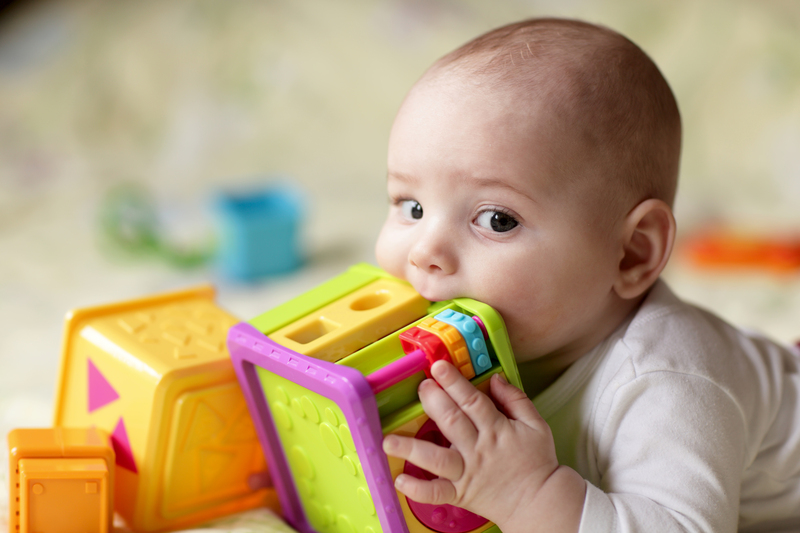The Surprising Link Between Home Cleanliness and Mental Wellbeing
Posted on 26/10/2025
The Surprising Link Between Home Cleanliness and Mental Wellbeing
Did you know that the state of your home can directly influence your mental health? For many, a tidy home is simply an aesthetic goal. However, an increasing body of research reveals that cleanliness at home does much more than provide visual comfort--it can actively enhance mental wellbeing, reduce stress, and increase overall happiness. In this comprehensive article, we'll dive deep into how maintaining cleanliness at home can have a profound effect on your psychological health. Let's uncover the surprising connections between household order and a balanced mind.
Understanding the Relationship Between Home Cleanliness and Mental Wellbeing
Why does a clean home contribute to mental wellness? The answer lies in the complex interplay between our environment and psychological state. Humans are deeply affected by their surroundings. Clutter and messiness at home have been linked to higher levels of cortisol--a stress hormone. On the contrary, a clean and orderly environment suggests safety, control, and serenity, all of which are essential for mental stability.
- Reduced Stress: Tidiness helps minimize distractions, which can ease anxiety and help you focus.
- Enhanced Mood: Living in a clean space often correlates with feelings of positivity and happiness.
- Greater Productivity: An uncluttered environment can aid concentration and allow for more effective work or relaxation.
The Science Behind Cleanliness and Mental Health
Multiple studies underscore the psychological benefits of regular house cleaning. According to a 2010 study published in the Personality and Social Psychology Bulletin, women who described their homes as "cluttered" or full of "unfinished projects" were more likely to be depressed, fatigued, and stressed. The participants who characterized their homes as "restful" and "restorative" reported happier, more positive moods throughout the day.
Another study carried out by Princeton University found that physical clutter in your surroundings competes for your attention, leading to decreased performance and increased stress. This demonstrates the vital importance of maintaining home cleanliness for psychological health.

How Home Cleanliness Impacts Mental Wellbeing
Clutter and Its Effect on the Mind
Clutter can be more than just a visual irritant. Psychologists have found that disarray and messiness can:
- Elevate stress levels
- Trigger feelings of guilt and embarrassment
- Increase procrastination
- Interfere with rest and sleep quality
Living in disorder can trap you in a cycle of negative emotions, making it harder to break free from anxiety and low mood.
Cleanliness and Self-Perception
Maintaining a clean living space boosts self-esteem and confidence. When you're able to keep your home tidy, you're reminded of your capability and self-control, which is essential for good mental health. Tidying up can be a form of self-care, affirming your sense of worth. This acts as positive reinforcement, making you more likely to continue healthy habits.
The Impact on Social Interactions
An orderly home also helps alleviate social anxiety. If you're worried about unexpected guests or roommates, a clean space reduces embarrassment and facilitates more spontaneous and enjoyable interactions. Socializing in a clutter-free home helps enhance mental wellbeing by providing a supportive backdrop for meaningful connections.
Strategies to Maintain Home Cleanliness for Better Mental Wellbeing
You don't need to become a perfectionist to enjoy the benefits of home cleanliness. Simple, consistent practices can go a long way in maintaining order and supporting psychological wellbeing.
Daily Habits for a Cleaner Home
- Declutter Regularly: Set aside 10-15 minutes daily to pick up and put away items.
- Establish Cleaning Routines: Consistency is key. Having a checklist for weekly and monthly chores can prevent overwhelming messes.
- Involve Everyone: When all household members share responsibility, maintaining order becomes easier and less stressful.
- Minimize Possessions: Adopting a minimalist approach can drastically cut down on clutter and make cleaning simpler.
Cultivating Mindfulness Through Cleaning
Cleaning doesn't have to be a chore. In fact, it can be a mindful, restorative practice that calms the mind. By focusing on the act of cleaning--with attention to detail, movements, and sensations--you can relieve stress and ground yourself in the present moment.
Try to view cleaning as a form of meditation:
- Pay close attention to sensations--warm water, fresh smells, or smooth surfaces.
- Breathe deeply and tune into each motion--sweeping, wiping, or folding.
- Let go of negative thoughts and focus on completing one task at a time.
Creating a Personalized Cleaning System
Every home and person is unique. Develop a cleaning method that fits your space and schedule, rather than striving for perfection. Small, daily actions often yield better results--and less stress--than sporadic, exhaustive cleaning sessions.
Common Barriers to Home Cleanliness and How to Overcome Them
Lack of Time
Busy lifestyles are a primary reason for household mess. The solution? Break up cleaning tasks into manageable chunks. Even five minutes of decluttering at a time is better than letting the mess accumulate.
- Multitask: Wipe down kitchen counters while waiting for food to cook.
- Set a Timer: Challenge yourself to tidy up as much as you can in just 10 minutes.
- Enlist Help: Allocate specific chores to each family member or roommate.
Emotional Attachment to Possessions
Many struggle to part with items for sentimental reasons. To overcome this:
- Ask yourself if the item truly brings joy or serves a purpose.
- Take photos of sentimental objects before discarding or donating them.
- Start small--try decluttering a single drawer or shelf, then expand.
Overwhelm and Mental Health Struggles
Mental health challenges themselves can make cleaning difficult. If you're feeling overwhelmed, seek support. Invite a friend to help, or hire a cleaning service periodically. Remember, every small effort counts in building a more positive home environment.
How a Clean Home Improves Overall Quality of Life
Promoting Physical Health
Aside from psychological benefits, a tidy home supports physical wellness. Clean spaces are less likely to harbor germs, allergens, and pests, contributing to better respiratory health and fewer illnesses. This, in turn, supports overall energy levels and mood.
Boosting Creativity and Focus
Did you know that a clutter-free home boosts creativity? Researchers have found that people generate more ideas when their environment is organized and free from distractions. Whether you work from home, pursue hobbies, or simply want to enjoy a good book, an orderly living space can make all the difference.
Enhancing Restorative Sleep
Sleep quality is essential for mental health. Sleeping in a chaotic or dirty room can interfere with deep, restful sleep. Keeping your bedroom clean and serene--free of distractions and clutter--helps cue your brain that it's time to relax, making it easier to fall and stay asleep. This nightly restoration is vital for emotional balance, memory, and resilience.
Home Cleanliness and Family Wellbeing
The benefits of a clean home extend to every household member. For children, growing up in an organized environment supports emotional regulation, better attention spans, and healthier habits. For couples or roommates, regular cleaning helps prevent conflict, foster cooperation, and create a more harmonious living experience.
- Teaches Responsibility: Children learn the value of routines and responsibility through participating in household chores.
- Reduces Family Stress: A clean shared space can lower stress and support open communication among family members.
- Builds Positive Memories: An inviting, orderly home is the perfect setting for happy moments and strong relationships.
The Surprising Connection: Home Cleanliness as Self-Care
Taking care of your living space is an act of self-love. Home cleanliness, mental wellbeing, and self-care are interconnected on many levels. When you make an effort to create a clean and organized environment, you're telling yourself--and those around you--that you matter. In this way, home cleaning is more than a chore; it's a cornerstone of personal wellness.

Frequently Asked Questions About Home Cleanliness and Mental Health
How often should I clean my home for optimal mental health?
There's no universal standard, but regular cleaning--at least some form of tidying each day--helps prevent overwhelming messes. Find a rhythm that suits your lifestyle.
Can cleaning too much be harmful?
While order supports mental wellbeing, obsessive-compulsive cleaning can become problematic. Balance and self-awareness are key; aim for comfort instead of perfection.
What if I struggle to keep my home clean due to depression or anxiety?
Be gentle with yourself. Start small, ask for support, and seek professional help if needed. Even minor efforts are a step toward a healthier, more empowering environment.
Conclusion: Harnessing the Power of a Clean Home for Better Mental Wellbeing
Home cleanliness and mental wellness are more closely connected than most realize. Whether you're seeking to reduce stress, improve mood, or cultivate a more positive lifestyle, starting with your living space is a powerful and accessible first step. By making intentional choices to care for your environment--even a little at a time--you can foster emotional balance, clarity, and a sense of control in your life.
Ready to feel calmer and more in control? Start by making your home a sanctuary--one room, one shelf, or even one surface at a time. The journey to improved mental wellbeing could be as close as your next cleaning session!
- Remember: Your environment matters. Treat your home with care, and your mind will thank you.
- Share this article if you found these clean-home mental health tips useful!
Latest Posts
Transform Your Kitchen with Pro Oven Cleaning Tips
The Surprising Link Between Home Cleanliness and Mental Wellbeing

 Company name:
Company name:  Telephone:
Telephone:  Opening Hours:
Opening Hours:  Street address:
Street address:  City:
City:  E-mail:
E-mail:  Web:
Web:  Description:
Description: 







